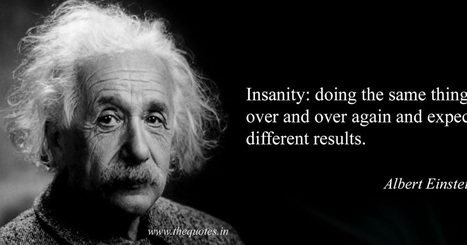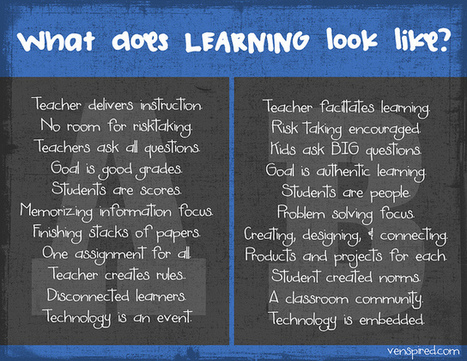Many other contributing factors inhibit the pursuit of meaningful change such as time, finances, mandates, and directives. However, there is another significant impediment to change that doesn’t get as much focus as it should and that is tradition. What this then morphs into is a mentality of ”if it’s not broken why fix it”? However, the underlying reason for not changing can be chalked up to TTWWADI – That’s the way we’ve always done it. Tradition, combined with the comfort of the status quo, forms a plausible excuse for not changing. As a result, the learning culture does not evolve or becomes stagnant for both learners and educators. TTWWADI is also a characteristic of a fixed mindset."
Get Started for FREE
Sign up with Facebook Sign up with X
I don't have a Facebook or a X account
 Your new post is loading... Your new post is loading...
 Your new post is loading... Your new post is loading...

Stephen Gwilliam's curator insight,
January 8, 2013 4:15 PM
Krissy Venosdale revised her Classroom A and Classroom B poster recently to represent "What does Learning Look Like". Some of these Classroom B descriptors indicate a learner-centered environment. What are some other descriptions that you would include?
Here are some of Krissy's thoughts behind Learning:
"Learning is a journey. Our kids change. The world changes. We change as teachers. This morning, I made a revised version of Classroom A versus Classroom B. As someone pointed out, it’s not a black and white issue. There is so much grey and so much individual choice. I’m not saying A or B is better for everyone. I’m saying you’ve gotta think and really understand what you want learning to look like in your classroom." 
Pilar Castro's curator insight,
May 21, 2013 11:48 AM
Es fundamental movernos de un enfoque centrado en la enseñanaza a un enfoque centrado en el aprendizaje. |
|















